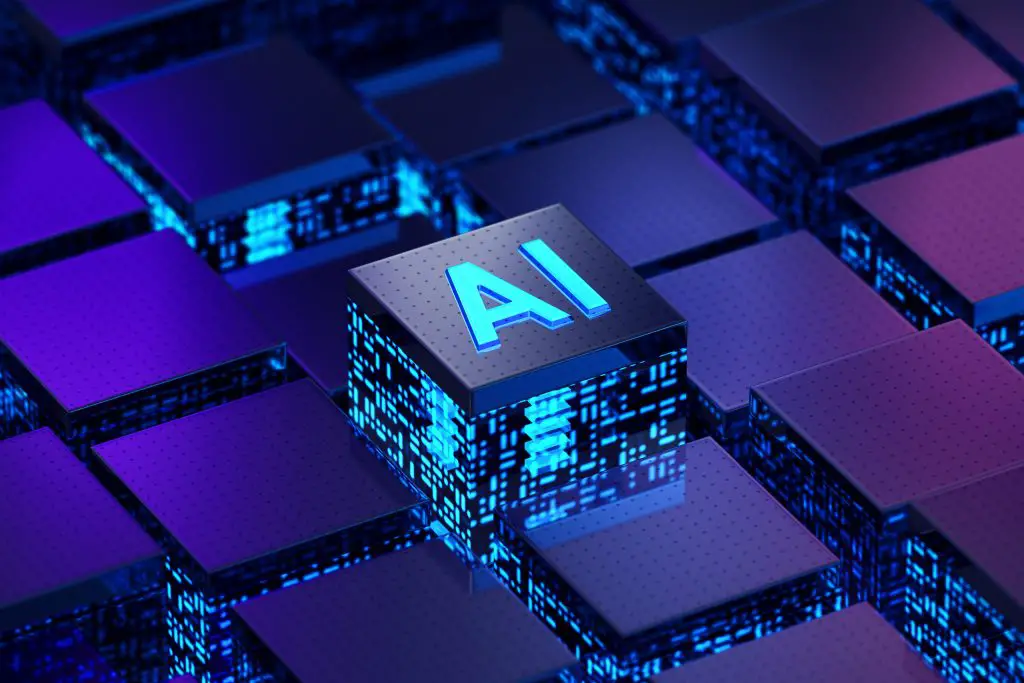The fusion of blockchain technology with artificial intelligence (AI) has unlocked a new frontier in innovation. This intersection has given rise to a variety of projects that leverage AI to enhance blockchain capabilities, automate processes, and create more efficient systems. Here, we explore the top 5 cryptocurrencies that are at the forefront of incorporating AI technologies into the crypto space.
SingularityNET (AGIX)
SingularityNET stands out as a pioneering force in integrating AI with blockchain. It is designed as a decentralized marketplace for AI services, enabling users and developers to buy and sell AI technologies seamlessly. The platform’s native token, AGIX, facilitates transactions within this ecosystem. SingularityNET’s goal is to democratize access to AI technology, making it more accessible to various industries and individuals around the world. Its partnership with renowned AI projects and initiatives underscores its commitment to creating a global AI network.
Fetch.ai (FET)
Fetch.ai is a platform that aims to revolutionize the way we interact with the digital world by creating a decentralized machine learning network. The project uses a combination of blockchain, DAG (Directed Acyclic Graph) technology, and AI to enable smart infrastructure and empower users to deploy and configure autonomous economic agents. These agents can perform tasks autonomously, such as optimizing energy usage or automating complex trading strategies. The FET token is used within the Fetch.ai ecosystem to access various services and transactions.
Ocean Protocol (OCEAN)
Ocean Protocol provides a decentralized data exchange platform, enabling individuals and enterprises to share and monetize data while guaranteeing control, auditability, and transparency. It leverages AI to ensure secure and privacy-preserving data sharing. This approach not only opens up new avenues for data usage across industries but also fosters the development of AI by providing an abundant source of data. The OCEAN token plays a crucial role in the ecosystem, facilitating data exchange and rewarding data providers.
Numeraire (NMR)
Numeraire is the native token of Numerai, a hedge fund structured around a decentralized network of data scientists. These contributors use AI and machine learning to create predictive financial models based on encrypted data provided by Numerai. The NMR token is used as a stake in these models’ predictions, with rewards distributed based on the accuracy of the predictions. This innovative approach not only enhances the hedge fund’s performance but also incentivizes the development of sophisticated AI models in finance.
VectorAI (VEC)
VectorAI may not be as widely recognized as the other projects on this list, but it represents an interesting application of AI in the blockchain space. It focuses on creating a more intelligent and efficient blockchain network by incorporating AI into the core functionalities of its platform. The project aims to use AI to optimize transactions, improve security measures, and enhance overall network performance. The VEC token is at the heart of this ecosystem, facilitating transactions and incentivizing participation.
These top 5 cryptocurrencies demonstrate the vast potential of combining AI with blockchain technology. From decentralized AI marketplaces and data exchanges to AI-driven hedge funds and blockchain optimization, these projects are leading the way in creating a more connected, efficient, and intelligent digital future. As the technology matures, we can expect to see further innovations and applications that will continue to shape the landscape of both AI and cryptocurrency.
The convergence of AI and blockchain through these cryptocurrencies is just the tip of the iceberg. As we delve deeper into the capabilities of these technologies, we can anticipate a future where AI not only enhances blockchain functionalities but also introduces new paradigms of interaction, automation, and efficiency across various sectors. Here are some potential developments and impacts of these innovations:
Enhanced Security and Fraud Detection
Blockchain’s inherent security features combined with AI’s predictive capabilities can significantly enhance fraud detection and prevention mechanisms. AI algorithms can analyze patterns and detect anomalies in real-time, thereby identifying potential threats and breaches before they occur. This synergy could lead to more secure financial transactions and data exchanges.
Improved Scalability and Efficiency
One of the challenges facing blockchain technology is scalability. AI can play a crucial role in optimizing blockchain networks for higher transaction throughput and reduced latency. By predicting traffic patterns and allocating resources accordingly, AI can help blockchain networks manage load more efficiently, leading to faster transaction times and lower costs.
Decentralized Autonomous Organizations (DAOs)
AI could enable the creation of more advanced DAOs, where smart contracts are not just simple scripts but complex AI agents that can make decisions based on a wide array of inputs. These AI-driven DAOs could manage resources, execute trades, or govern communities with minimal human intervention, paving the way for truly autonomous organizations.
Personalized Financial Services
In the realm of DeFi (Decentralized Finance), AI can provide personalized investment advice, optimize portfolios, and offer predictive market analyses. By leveraging the vast amounts of data on the blockchain, AI can tailor financial services to individual needs, preferences, and risk profiles, democratizing access to sophisticated financial advice.
Ethical Considerations and Governance
As AI becomes more integrated into blockchain and cryptocurrencies, ethical considerations and governance will become increasingly important. Ensuring that AI operates transparently and fairly, respects privacy, and makes decisions in the best interest of all stakeholders will be crucial. This may involve developing new frameworks for AI governance and accountability on the blockchain.
Looking Ahead
The intersection of AI and blockchain holds immense promise, but it also presents challenges, including ethical concerns, the need for robust security measures, and the potential for increased complexity. However, by addressing these challenges head-on and fostering collaboration between technologists, ethicists, and regulators, we can harness the full potential of AI-enhanced cryptocurrencies to create a more efficient, secure, and equitable digital future.
As the technology evolves, we will likely see more innovative applications of AI in the crypto space, further blurring the lines between digital and physical, between human decision-making and machine intelligence. The journey of AI cryptocurrencies is just beginning, and the possibilities are as limitless as the technology itself.






